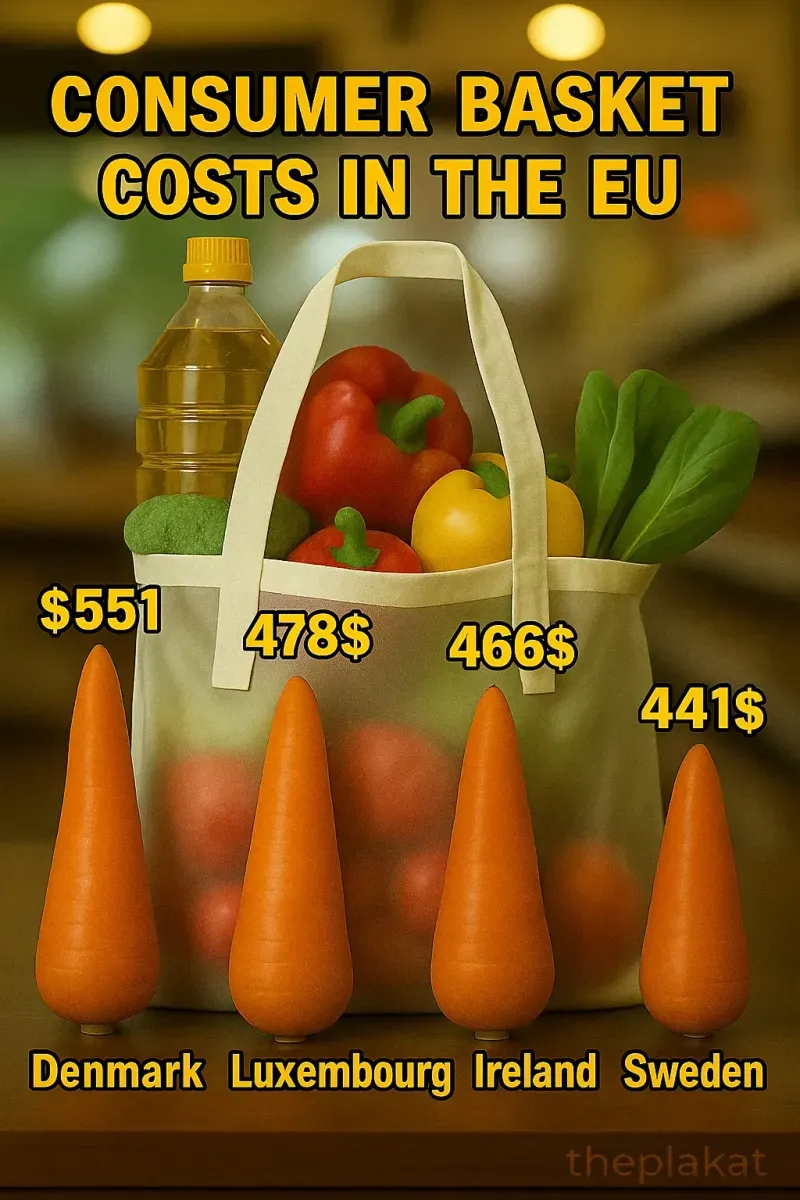Published
in Economy
The cost of the basic consumer basket in EU countries in 2024 varies enormously — from just $184 in Bulgaria and Romania to an eye-watering $551 in Denmark. Dive into our data-driven analysis of the 2024 consumer basket in Europe.
A basic consumer basket represents a fixed set of essential goods and services required for daily life. This typically includes food (bread, milk, meat, vegetables), housing-related expenses, clothing, healthcare, transport, and essential utilities. Governments and statistical agencies use this concept to monitor inflation and compare living costs across regions.
In 2024, the most expensive basic consumer basket among EU countries was found in Denmark ($551), followed by Luxembourg ($478) and Ireland ($466). On the opposite end, Bulgaria and Romania recorded the cheapest baskets — only $184. The EU-wide average was approximately $331. Countries such as Germany, France, and the Netherlands were close to this average (~$404).
The gap between Denmark and Romania/Bulgaria is particularly striking — the Danish basket costs nearly 3 times more. Scandinavian countries generally show higher costs, driven by strong currencies and higher living standards. Conversely, Eastern European countries maintain much lower costs, largely due to lower wage levels and local price structures. Southern European countries like Italy, Spain, and Portugal also remain below the EU average.
Globally, EU countries sit at the upper end of consumer basket costs compared to many emerging markets, where even $100–$150 covers a similar basket. However, some non-EU high-income countries (like Switzerland and Norway) exceed even Denmark. The total share of other low-cost countries ('the rest') remains small but highlights ongoing global inequality in purchasing power.

A consumer basket represents the average set of goods and services purchased by households, used to measure price changes and inflation.
It indicates living standards and consumption preferences, serving as a benchmark for economic analysis and policy-making to address inflation and fiscal strategies.
Key trends include a shift towards digital and sustainable consumption, with increased interest in organic and health-conscious products.